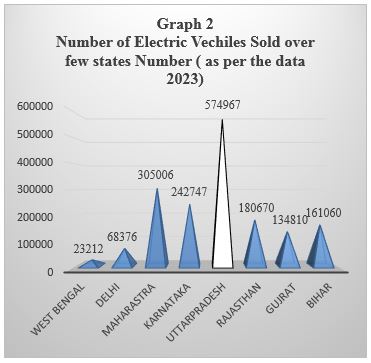Consumer’s Perception towards Green Transportation and its Impact on Sustainability
DOI:
https://doi.org/10.5281/zenodo.15562275Keywords:
electric vehicle (ev), gasoline, sustainability, correlation, co-efficient, affordabilityAbstract
In our worldwide competitive environment, a few percentages of vehicles sold in India are generally Electric. The purpose of the current study is to examine the hindrance of influencing consumer’s intension to adapt sustainable Electric Vehicle (EV) based on their habitual or purchasing behavior frequency. The Indian Government has made several numerous attempts to promote and ensure a fruitful introduction to Electric Vehicle through out PAN India level. Concerning environmental awareness has also been appreciated the new development of innovative Bio-Friendly Vehicles other than traditional Gasoline vehicles. The Objective of the study is to ascertain the consumer perception towards the adaption of Electric Vehicles. In this paper we have used two variables namely Dependent & Independent variables. On such basis Consumer Perception will be a dependent variables, in another side Government Initiative Towards promoting of EV, Affordability of Consumers towards adaption of EV, Awareness with the concern of Environmental factor will be considered as Independent Variables. A Sample of Fifty-Seven (57) responses were collected for this study based on structural questions given to the respondents. This Study displayed the significance the two pair of combinations on the dependent variable that is consumers’ perception. The Objective of our study is to evaluate is there any significant impact of such combinations and which one of the combinations is/are most likely affect or the highest significant factor on the consumers’ perception by applying different statistical tool. The tools we have used Correlation Co-efficient in a combination of independent variables and we have reached a standpoint how consumers will react towards the adoption of EV and its sustainability.
Downloads
References
Attri, R., & Kushwala, P. S. (2024, June). Electric vehicles in India: Identifying the adaption predictors. Prabandhan: Indian Journal of Management, 17(06).
Mahapatra, S., & Mohanachandran, D. (2023, February). A comparative study on the sustainable transportation system in India and lessons to be learned from other devoloping countries. MDPI Journal, 16(02), 1-21.
Mustafa, S., Shi, Y., & Wen Luo, W. (2024, July 31). Role of environmental awareness & self identification expensiveness in electric vehicle. Transportaion.
Rajvanshi, A. K. (2002, Sept.). Electric and Improved Cycle Rickhaw as a sustainable transport system for India. Current Science, 83(02), 1-6.
Ramanathan, R. (1999). Transport Sector In India: An Analysis in the context of Sustainable Development. Retrieved from: www.elsevier.com/locate/tranpol.
Reddy, A. K., & Anand, Y. (2000, June). Energy for sustainable road/ rail transport system in India. Energy for Sustainable Development, IV(01), 29-44.
Singh, P., & Sadhu, I. (2023, June). Consumer attitude towards electric vechile in India: Mapping psychological antecedents & consequences. Indian Journal of Marketing, 53(06).
Thynell, M., Mohan, D., & Tiwari, G. (2010, July). Sustainable transport and modernisation of urban transport in Delhi & stockholm. Science Direct, 10(02), 421-429. Retrieved from: www.elsevier.com/locate/cities.
Vajjarapu, H., & Karmakar, O. (2019, May). Sustainable urban transport policies to improve public transportation system. Science Direct: World Conference on Transport Research WCTR 2019, 48, 3545-3561.
Verma, A., & Sreenivasulu, S. (2011, May). Achiving sustainable transporation system for Indian cities: Problems & issues. Current Science Association, 100(09), 1328-1339. Retrieved from: https://www.jstor.org/stable/240765698.
https://www.smev.in/statistics.
https://pib.gov.in/press release.

Published
How to Cite
Issue
Section
License
Copyright (c) 2025 Sanjib Paul, Sandip Bhattacharyya

This work is licensed under a Creative Commons Attribution 4.0 International License.
Research Articles in 'Management Journal for Advanced Research' are Open Access articles published under the Creative Commons CC BY License Creative Commons Attribution 4.0 International License http://creativecommons.org/licenses/by/4.0/. This license allows you to share – copy and redistribute the material in any medium or format. Adapt – remix, transform, and build upon the material for any purpose, even commercially.









